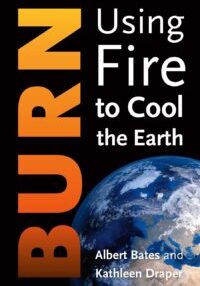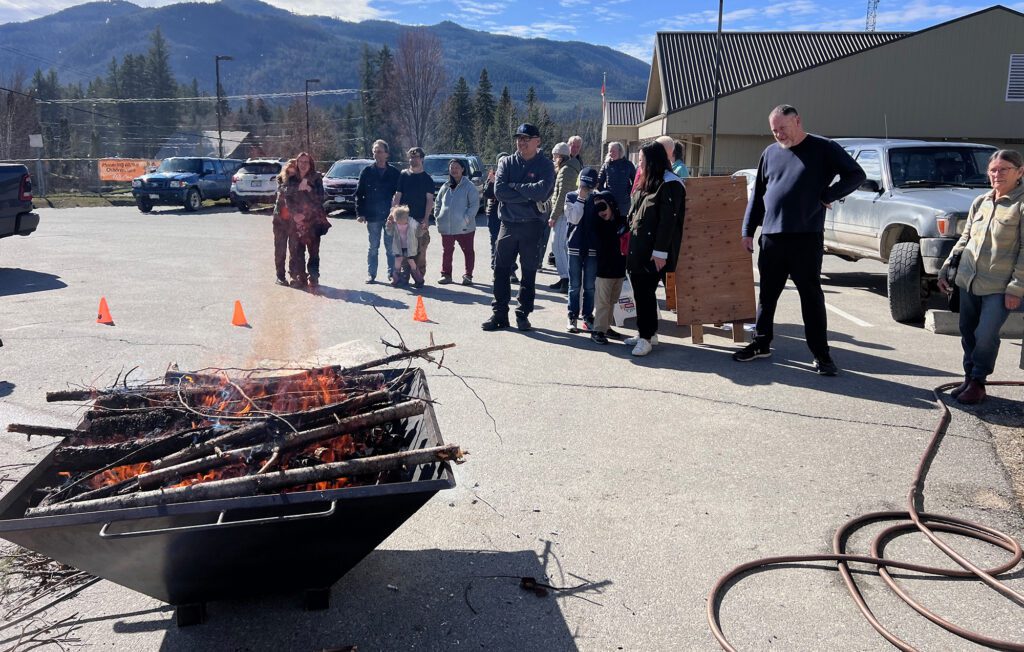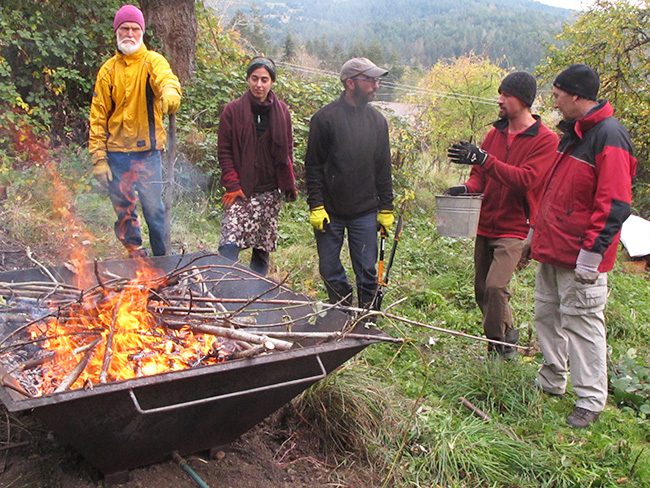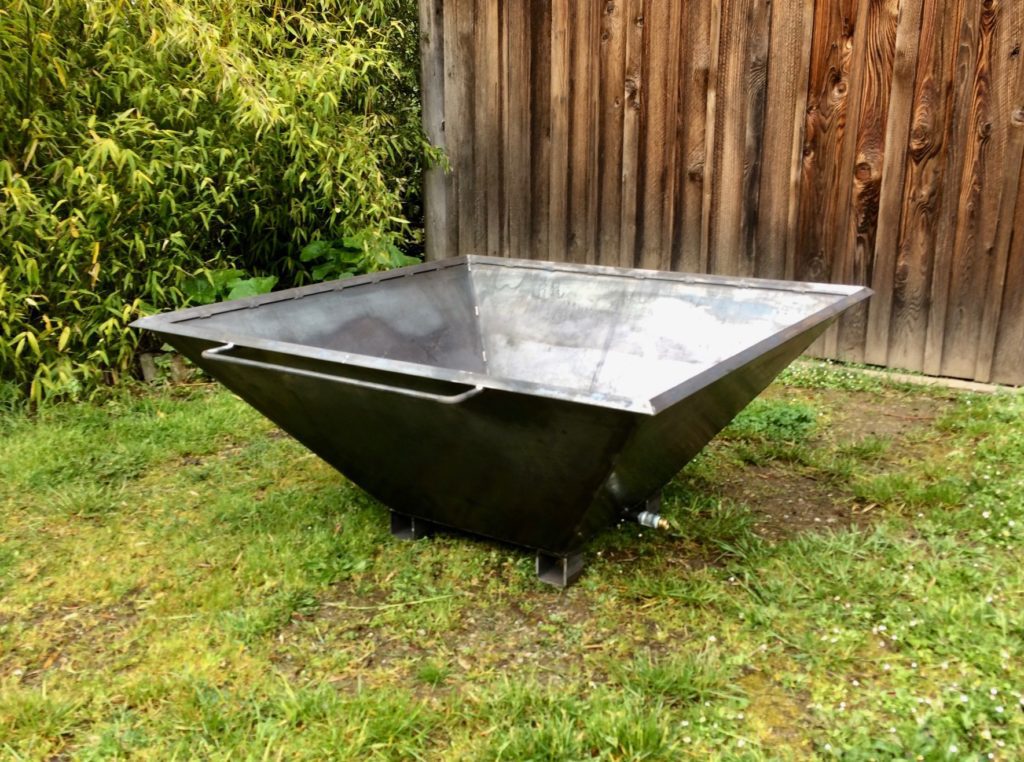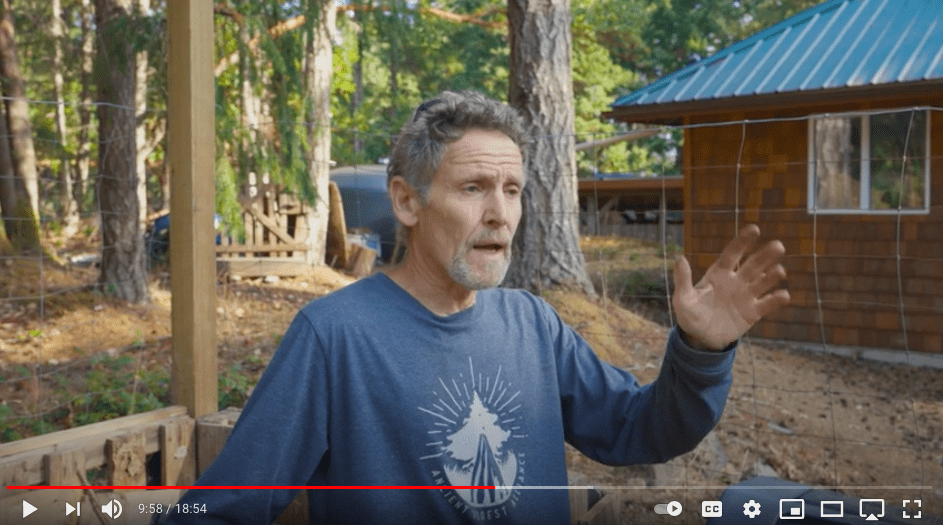Get news, updates and special invites from Transition Salt Spring. Join our mailing list...
Our group works to educate our community on the uses, advantages and production of biochar, charcoal that is used as a soil amendment.
Membership is free and open to residents of SSI.
Contact Brian Smallshaw for more information.
Biochar Working Group Activities
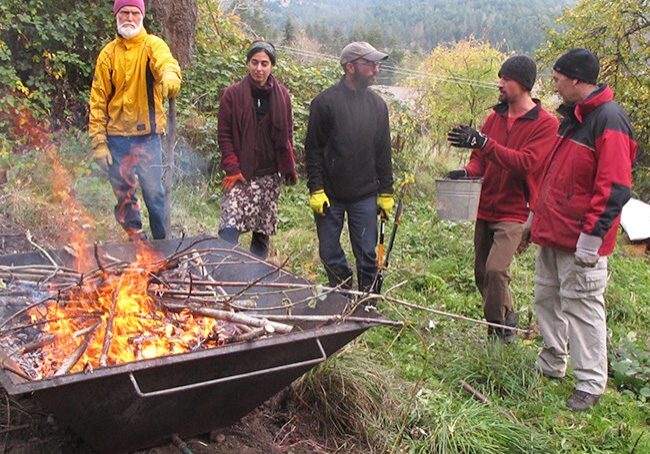
How does biochar work?
Using open cavity kilns, wood waste such as tree branches and prunings can be turned into biochar for use in gardens and orchards to improve soil fertility. Wood burned in this way produces much less smoke than when burned in a normal burn pile and the biochar that is produced is very stable carbon; when placed in the soil it will remain there for much longer than if the wood had been allowed to decompose—producing biochar is a low-tech means of carbon sequestration.
Education
The Biochar Working Group regularly holds biochar workshops in all seasons except during the summer fire ban. Participants get hands-on training in making biochar from wood waste such such as branches and prunings using open cavity kilns, and advice on using biochar in their gardens and orchards. The workshops can be held in open locations where water is available, and a pickup truck can deliver a kiln. Workshops typically take three hours and participants are advised to wear boots, gloves, non-synthetic clothing and eye protection. Contact the group to join a workshop or organize one at your location.
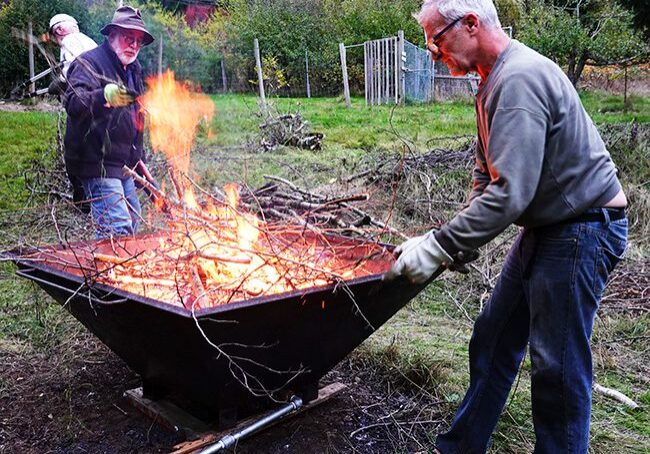
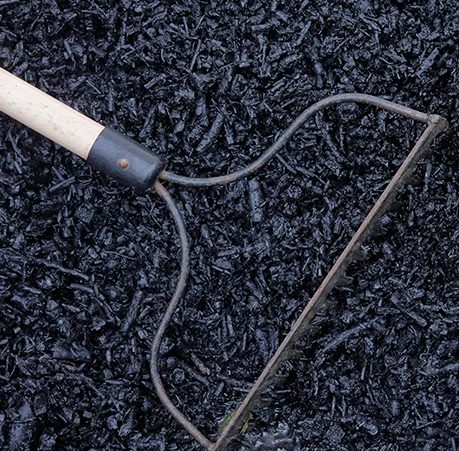
Goals
As of June 2022, there are about 20 open cavity kilns in use on Salt Spring, all of them owned by private individuals. The Biochar Working Group’s goal is to have a similar number of kilns owned collectively on the island and available to borrow by individuals wishing to make their own biochar. It is hoped that at least one of these public kilns could be located in every neighbourhood on the island so that individuals could borrow them for a week to do their burning in a kiln instead of an open burn pile.
Resources - Further Reading
Biochar Advantages
- Improves the fertility of soils by providing habitats for beneficial soil bacteria and fungi.
- Improves the moisture retention of the soil, important in our increasingly dry summers.
- Biochar is highly stable in the soil, helping increase soil volume.
- Making biochar in an open cavity kiln produces much less smoke than an open burn pile.
- Biochar is a simple, low-tech means of carbon sequestration.
- In the long term, turning wood into biochar emits less carbon than allowing it to decompose.
- No external energy is required for its production, unlike with wood chipping.
- The equipment for making biochar is simple, inexpensive and can be locally fabricated, unlike wood chippers.
